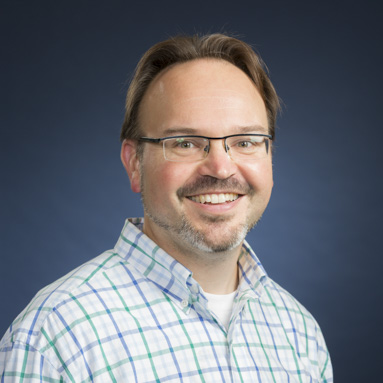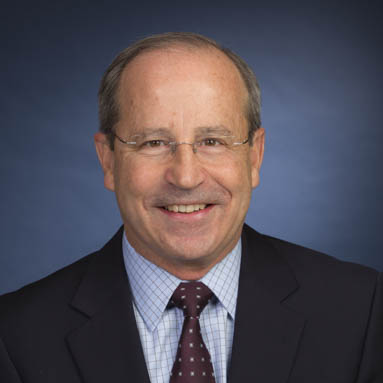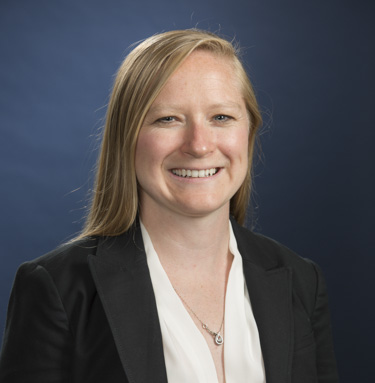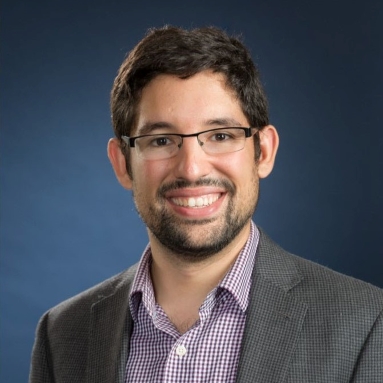WPI’s PhD in Chemical Engineering brings you to the front and center of widely recognized global work in chemical engineering and related fields. You’ll have immediate access to advanced technologies, processes, and pioneering faculty providing core support in molecular bioengineering, sustainable energy, advanced functional materials, and catalysis, to name a few. You will join a diverse group of graduate students and because of WPI’s small size, you will have the opportunity to develop strong mentoring relationships with not only your primary faculty advisor but other faculty in the chemical engineering PhD program. WPI has a long-standing tradition of “research for a purpose” to address a societal need, so your work will have a tangible impact. Because of WPI’s interdisciplinary research tradition, you will get the opportunity to explore topics outside of the box. What is a PhD in chemical engineering? It’s a degree that prepares you to take on future challenges as a leader in the research community.

While pursuing your Chemical Engineering PhD at WPI, you’ll employ active learning and knowledge of up-to-date practices to solve diverse real-life problems in areas such as bioengineering, nanotechnology, environmental engineering, energy, catalysis, process control, and safety. You’ll have your choice of courses to achieve your goals, with many electives offered within Chemical Engineering and in related departments such as Biology and Biotechnology, Biomedical Engineering, Chemistry and Biochemistry, Mechanical Engineering, and Physics. Complete course descriptions and degree requirements for the PhD in chemical engineering are in the Course Catalog.
Graduate Student Professional Development
WPI is an emerging leader in graduate student professional development and offers a number of opportunities for graduate students to develop their interests and skills outside of a traditional research context. WPI’s Graduate School supports a robust Office of Professional Development and offers annual seminars and workshops as part of the STARS Program. The Chemical Engineering Department offers an annual Graduate Student Seminar Series where students explore the creation and implementation of Individual Development Plans, meet industry experts as part of career panels, and present their research to both peers and professionals.
Have questions?
WPI's dedicated graduate student support team can help.
Refer a Friend
Do you have a friend, colleague, or family member who might be interested in a WPI graduate program? Click below to tell them about our programs.
Research areas in Chemical Engineering:
- Catalysis
- Cellular and metabolic engineering
- Nanotechnology
- Biofuels
- Biopolymer interfaces
- Computational chemistry
- Functional materials
- Reaction engineering

WPI’s chemical engineering research areas address pressing global challenges, including advanced functional materials, molecular bioengineering, sustainable energy engineering, and engineering education.

Lab work is essential, but faculty want students to succeed in all aspects of their careers so professional development opportunities are offered and encouraged.

Students and faculty work closely as they conduct research in multidisciplinary, open lab environments within state-of-the-art facilities.

Graduate students use WPI’s computational facilities to advance their work in simulations, bioinformatics, and big data analysis.

Cutting-edge research in our labs makes a direct impact on human life.

From medical devices that stave off or prevent infections to advances in additive manufacturing, research in the chemical engineering department brings global problems to a human scale.

Chemical engineering is a vibrant, research-active department with dedicated and innovative faculty and students.

WPI’s chemical engineering research areas address pressing global challenges, including advanced functional materials, molecular bioengineering, sustainable energy engineering, and engineering education.

Lab work is essential, but faculty want students to succeed in all aspects of their careers so professional development opportunities are offered and encouraged.

Students and faculty work closely as they conduct research in multidisciplinary, open lab environments within state-of-the-art facilities.

Graduate students use WPI’s computational facilities to advance their work in simulations, bioinformatics, and big data analysis.

Cutting-edge research in our labs makes a direct impact on human life.

From medical devices that stave off or prevent infections to advances in additive manufacturing, research in the chemical engineering department brings global problems to a human scale.

Chemical engineering is a vibrant, research-active department with dedicated and innovative faculty and students.

WPI’s chemical engineering research areas address pressing global challenges, including advanced functional materials, molecular bioengineering, sustainable energy engineering, and engineering education.
A big advantage in WPI’s PhD in Chemical Engineering program is your access to cutting-edge facilities and labs for interdisciplinary research. From our main facilities in Goddard Hall and Gateway Park to our many research centers, you’ll join other researchers across disciplines to use specialized equipment and novel processes and technologies.
Explore Your Career Potential with a Chemical Engineering PhD
Maybe you’re asking yourself how much do PhD chemical engineers make or are a chemical engineering PhD worth it? Check out our career outlook for the chemical engineering field and find out for yourself the types of companies that have hired WPI graduates, salary data, job titles, and more.
Jump Start Your Career with a Chemical Engineering Professional MS
WPI’s Chemical Engineering Professional MS degree lets you work on an industry project so you’ll gain advanced skills and professional credibility while earning your degree. This program’s distinctive Graduate Qualifying Project (GQP) lets you build the foundation you need for career success.
Need an MS First? Earn a Professional or Regular Master’s in Chemical Engineering!
Just browsing our graduate programs and need to earn a master’s in chemical engineering first? Our MS in chemical engineering focuses on global research so students can study the impact of technology, speed and accuracy, and more. If you’re looking for academic and industry expertise, our professional MS will provide exposure to the field while working on an industry-specific project.
Faculty Profiles

Sharing that “ah hah” moment with a student struggling and suddenly mastering a difficult concept; helping expand the intellectual horizons of an aspiring engineer; tackling and solving problems that challenge the energy, economic, and environmental security with passionate students; sharing my passion for engineering science: these are the reasons that I am a professor of chemical engineering. WPI students understand the importance of translating their engineering talents into technologies and knowledge that benefit others.

To me there is nothing more exciting than watching a student learn and develop and there is no greater privilege than having the title of professor. My favorite part of my job is being able to mentor and teach students in a research context – be that in a biochemical engineering course or laboratory, through supervising undergraduate IQP/MQP projects or by advising doctoral students in their thesis work. There is no greater satisfaction than to watch a timid, insecure student gain confidence through knowledge and practice.
Students here at Worcester Polytechnic Institute have a lot of enthusiasm and ambition, and it certainly is contagious. Teaching brings a lot of joy because of this, and I find myself often trying just to keep up with the students! I love to collaborate with people from many different backgrounds and technical interests. For my research, I work in the area of molecular modeling: trying to understand and solve energy and environmental problems using high-powered computer simulations. I am also involved in supporting, educating, and empowering introverted students.

My research involves educational scholarship: investigating how students learn chemical engineering and how the curriculum can be modified to optimize learning. That includes understanding learning in hands-on labs compared to virtual or remotely operated labs; learning in international contexts; and how safety, ethics, and social responsibility can be effectively integrated into the chemical engineering curriculum.

My research utilizes an interdisciplinary approach to explore and exploit the physical properties of biological soft matter systems. Through investigating the biophysical properties of cells, multicellular communities and their microenvironments, my group seeks to reveal connections between the physical properties of living systems and their disease states and to utilize these findings to develop biological control strategies, therapeutics and diagnostics. We are particularly focused on using our soft matter approach to address bacterial infection prevention and control.

Andrew is a classically trained chemical engineer with with specialties in the fields of chemical reaction engineering and materials science. He received his B.S. from Worcester Polytechnic Institute in 2009, and continued to pursue his Ph.D. with Professor Dauenhauer at the University of Massachusetts Amherst in 2014, before completing his postdoctoral studies with Professor Jensen at the Massachusetts Institute of Technology in 2016, ultimately joining the faculty at WPI in 2017.

Sharing that “ah hah” moment with a student struggling and suddenly mastering a difficult concept; helping expand the intellectual horizons of an aspiring engineer; tackling and solving problems that challenge the energy, economic, and environmental security with passionate students; sharing my passion for engineering science: these are the reasons that I am a professor of chemical engineering. WPI students understand the importance of translating their engineering talents into technologies and knowledge that benefit others.

To me there is nothing more exciting than watching a student learn and develop and there is no greater privilege than having the title of professor. My favorite part of my job is being able to mentor and teach students in a research context – be that in a biochemical engineering course or laboratory, through supervising undergraduate IQP/MQP projects or by advising doctoral students in their thesis work. There is no greater satisfaction than to watch a timid, insecure student gain confidence through knowledge and practice.
Students here at Worcester Polytechnic Institute have a lot of enthusiasm and ambition, and it certainly is contagious. Teaching brings a lot of joy because of this, and I find myself often trying just to keep up with the students! I love to collaborate with people from many different backgrounds and technical interests. For my research, I work in the area of molecular modeling: trying to understand and solve energy and environmental problems using high-powered computer simulations. I am also involved in supporting, educating, and empowering introverted students.

My research involves educational scholarship: investigating how students learn chemical engineering and how the curriculum can be modified to optimize learning. That includes understanding learning in hands-on labs compared to virtual or remotely operated labs; learning in international contexts; and how safety, ethics, and social responsibility can be effectively integrated into the chemical engineering curriculum.

My research utilizes an interdisciplinary approach to explore and exploit the physical properties of biological soft matter systems. Through investigating the biophysical properties of cells, multicellular communities and their microenvironments, my group seeks to reveal connections between the physical properties of living systems and their disease states and to utilize these findings to develop biological control strategies, therapeutics and diagnostics. We are particularly focused on using our soft matter approach to address bacterial infection prevention and control.

Andrew is a classically trained chemical engineer with with specialties in the fields of chemical reaction engineering and materials science. He received his B.S. from Worcester Polytechnic Institute in 2009, and continued to pursue his Ph.D. with Professor Dauenhauer at the University of Massachusetts Amherst in 2014, before completing his postdoctoral studies with Professor Jensen at the Massachusetts Institute of Technology in 2016, ultimately joining the faculty at WPI in 2017.

Sharing that “ah hah” moment with a student struggling and suddenly mastering a difficult concept; helping expand the intellectual horizons of an aspiring engineer; tackling and solving problems that challenge the energy, economic, and environmental security with passionate students; sharing my passion for engineering science: these are the reasons that I am a professor of chemical engineering. WPI students understand the importance of translating their engineering talents into technologies and knowledge that benefit others.
The BioPoint Program for Graduate Students has been designed to complement traditional training in bioscience, digital and engineering fields. Students accepted into one of the home BioPoint programs will have the flexibility to select research advisors and take electives in other departments to broaden their skills. BioPoint curriculum is designed to be individual, interactive, project-focused and diverse, and includes innovative courses, seminars, journal clubs and industrial-based projects. Learn more.